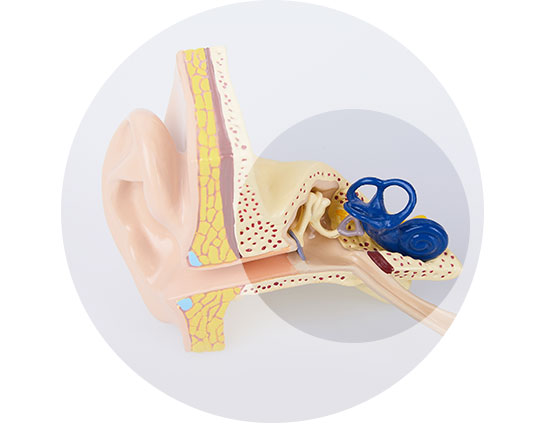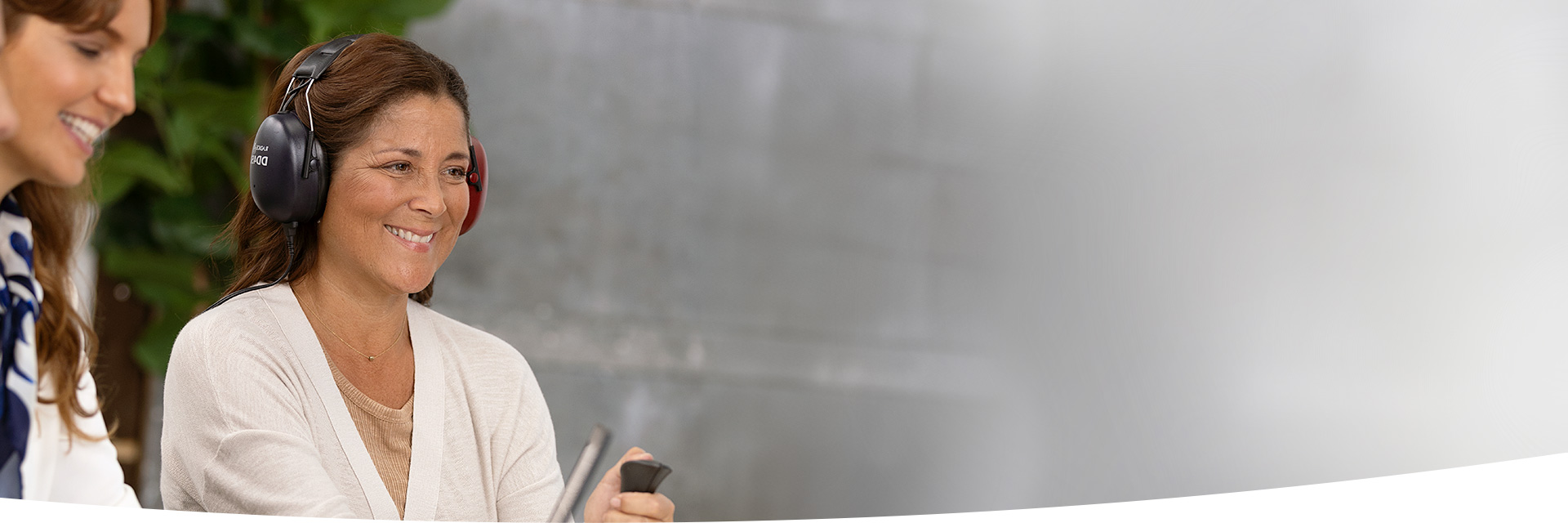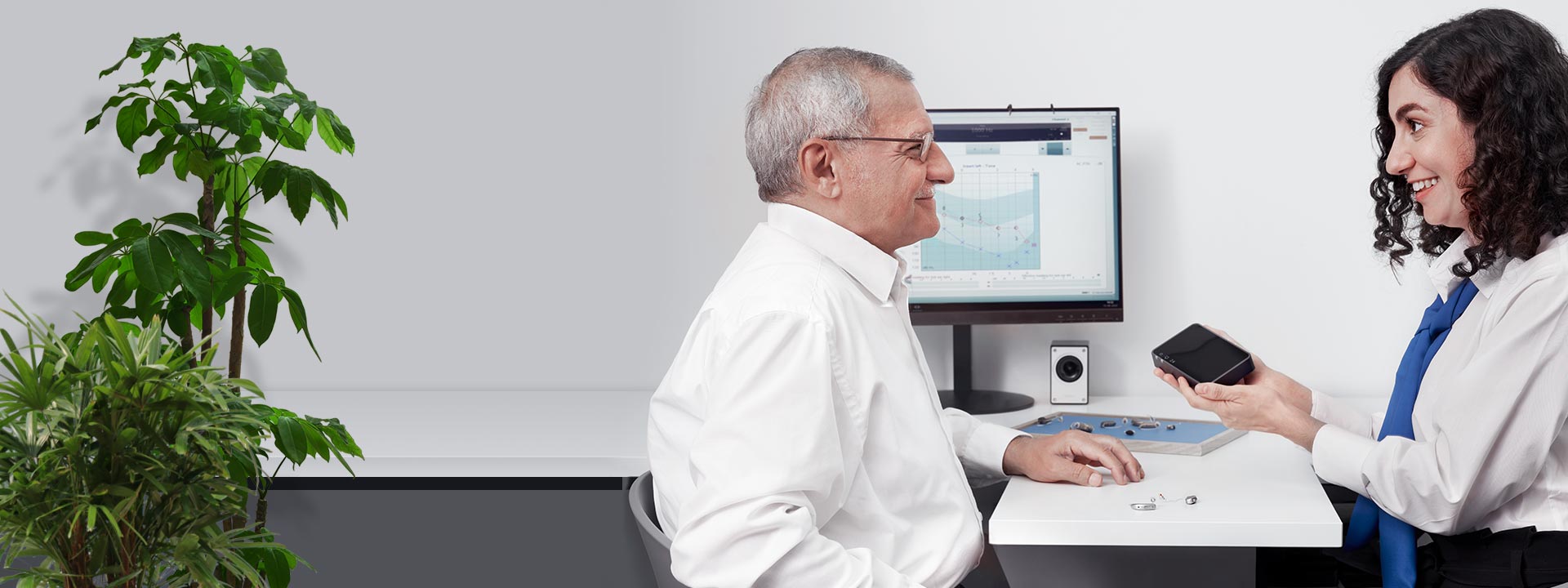What is high-frequency hearing loss?
High frequency hearing loss is a hearing impairment where a person has difficulty hearing sounds in the higher frequency range of the auditory spectrum. People who suffer from high frequency hearing loss have difficulty hearing high-pitched sounds. A notable consequence of this is that consonants in words become difficult to hear, meaning that others may sound like they are mumbling.
High frequency hearing loss is often caused by age related changes or prolonged exposure to loud sounds.













